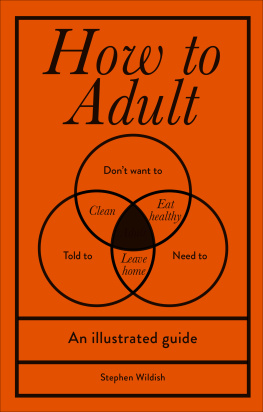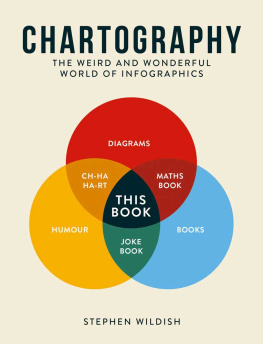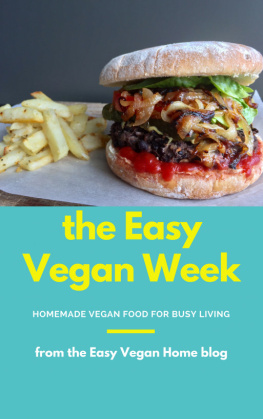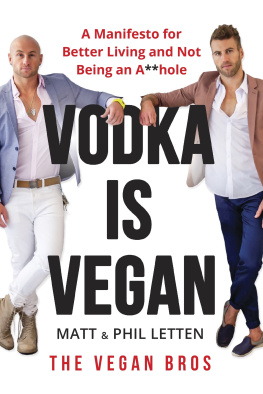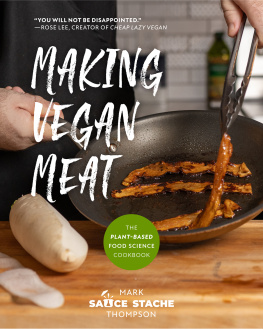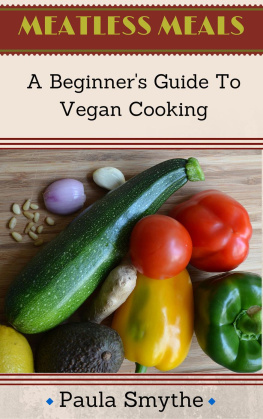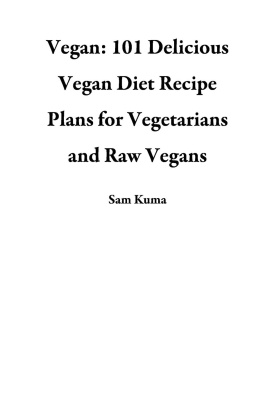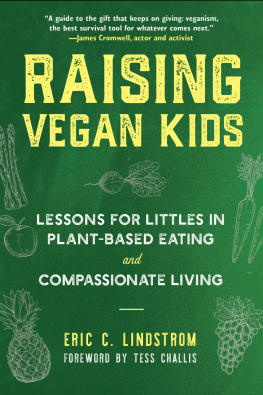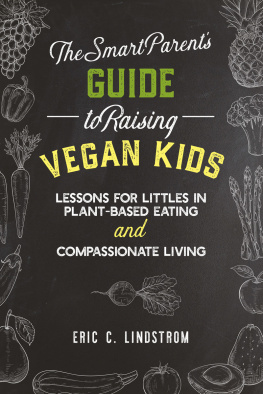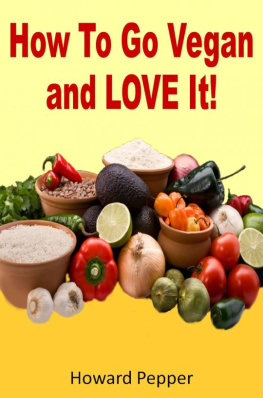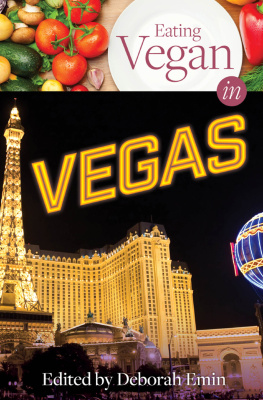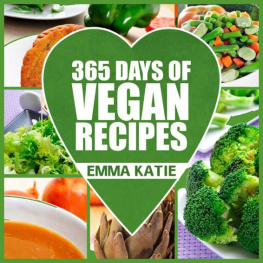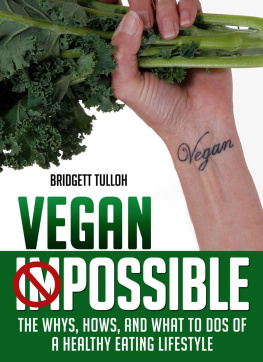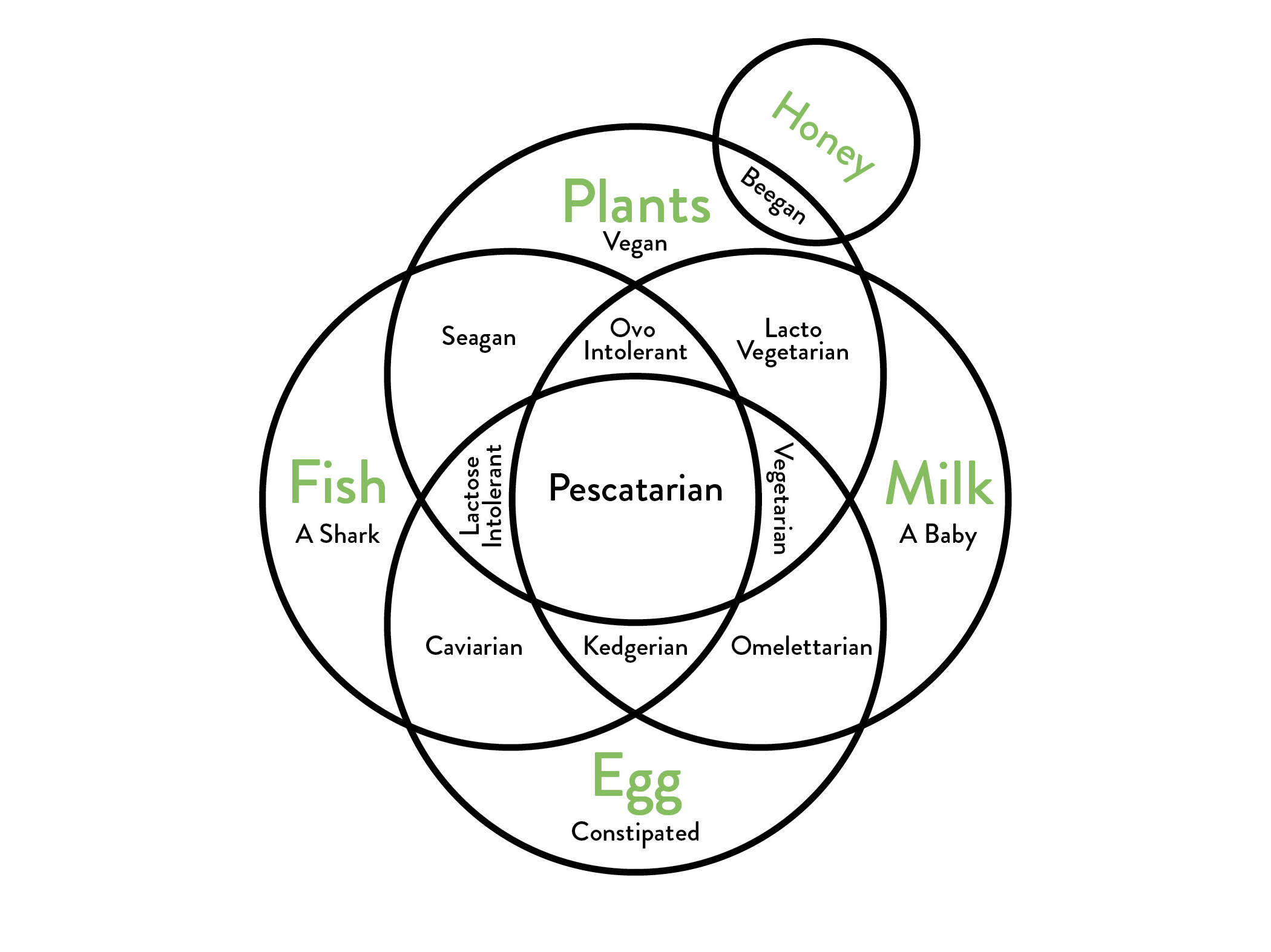How to Vegan
copyright 2020 by Stephen Wildish. All rights reserved. No part of this book may be used or reproduced in any manner whatsoever without written permission except in the case of reprints in the context of reviews.
Andrews McMeel Publishing
a division of Andrews McMeel Universal
1130 Walnut Street, Kansas City, Missouri 64106
www.andrewsmcmeel.com
First published in 2020 by Pop Press, an imprint of Ebury Publishing,
20 Vauxhall Bridge Road,
London SW1V 2SA
ISBN: 978-1-5248-6766-9
Library of Congress Control Number: 2020930778
Editor: Jean Z. Lucas
Art Director: Holly Swayne
Production Manager: Carol Coe
Production Editor: David Shaw
Digital Production: Kristen Minter
ATTENTION: SCHOOLS AND BUSINESSES
Andrews McMeel books are available at quantity discounts with bulk purchase for educational, business, or sales promotional use. For information, please e-mail the Andrews McMeel Publishing Special Sales Department: .
Have I told you Im vegan yet?
Contents
Introduction
Answers to questions like: What is a vegan, wait, I dont eat gluten, am I a vegan?! and more.
Introduction
Welcome to How to Vegan, a guide to being a vegan. Contrary to popular belief, going vegan is pretty easy. You dont need any special equipment or a uniform. Those things are available, sure, but they are not a requirement.
We will cover how to eat vegan, how to talk vegan, and how to cope with people in bars who dont understand nutrition.
Conversations with non-vegans
History of vegetarianism
Let's start at the start, vegetarianism is first mentioned in 500 bc by the Master of Triangles Pythagoras. He was part of a cult that advocated benevolance to all living creatures, including humans. Vegetarianism was know as a Pythagorean diet for years, up until the modern vegetarian movement began in the mid-1800s.
Humans have, of course, had meatless diets for centuries before Pythagoras. Early humans would have eaten a mainly plant-based diet with a treat of mammoth at Christmas and birthdays.
Many ancient societies had vegetarianism as a commonplace. Buddhism, Hinduism, and Jainism practice vegetarianism, believing that humans should not inflict pain on other animals. India, the home of Hinduism, is still the country with the largest population of vegetarians.
Notable historical vegetarians include:
Leo Tolstoy, George Bernard Shaw, Mahatma Gandhi
Noteable dictators who just happened to be vegetarian:
Adolf Hilter
History of veganism
In 1944, Donald Watson, a prominent vegetarian, coined the term Vegan as a way to separate vegetarianism with those who also avoided all animal products.
Donalds other suggestions included dairyban, vitan, and benevore. Luckily he settled on vegan as vegans get criticized enough without having to be called dairyban!
What is a vegan?
Simply put, a vegan is someone who abstains from eating or using animal products.
Vegans have decided that they can live their lives without using animal products. There are many reasons to be vegan: ethics, health, environmental, and bragging rights on Instagram. Whatever the reason, chosing not to kill animals for your dinner is a positive choice and one to be applauded.
Being vegan isnt about: gluten free, being healthy, yoga, clean living, or being nice to people. You can be any of those things and still be a vegan, but the general public are simply awful and being nice to them is a chore.
Veganism levels
You can just be a standard vegan, avoiding animal products and living your life. Or you can go extra, outdoing all the other vegans:
Who eats what?
Nomenclature
There are a few synonyms for things in the vegan world. Terms like plant-based and vegan-friendly have started appearing on products. It's a softer way to say vegan for those who are a bit squeamish about these things. But being vegan is more than just having a plant-based diet, its also against the use of animals in all things from clothing to testing cosmetics.
Types of vegan
Because there are many reasons to go vegan there are all sorts of sub-genres of vegan. For example, some vegans are primarily in it for the animals without any regard for their own health, while others are concerned more with their carbon footprint.
Raw vegans
Rather than this being a cannibalism issue, a raw vegan eats all their food raw or heated to a temperature below 104 118F. No processed foods but tons of fruits, vegetables, nuts, seeds, sprouted grains, and legumes.


